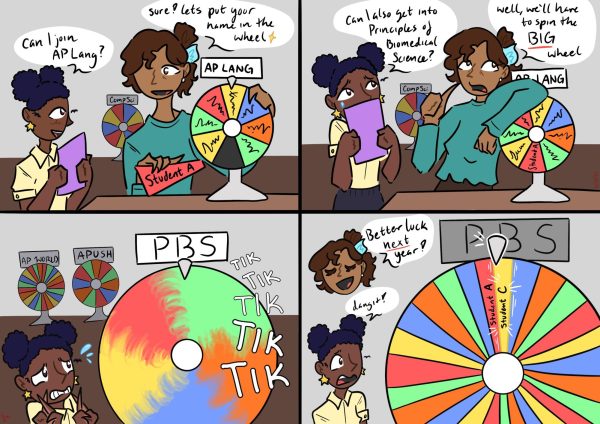Etiquette has a place on social media
There’s been a lot of buzz recently on whether social media sites such as Twitter are acceptable places to debate opinions on controversial topics.
Some say that Twitter is a site teens go on just for fun and to make jokes, and it isn’t the place to discuss serious issues such as police brutality, feminism or racism.
As much as I love seeing memes of Kermit the Frog drinking tea, I have to argue that Twitter can be a great place to share thoughts on real-life issues, too.
Social media can be an incredible tool to discuss important problems facing our nation.
All people have the right to share their opinions with the world, and the Internet is a great way for students to talk and connect with people who share similar ideals.
That being said, there’s also some etiquette one should follow when tackling a controversial topic online. What some students call “online debates” are more accurately students insulting anyone who disagrees with them and justifying it by saying they have the right to freedom of speech.
If you want to share your opinion online, make sure to follow these simple rules.
First, be informed about the issue you’re tweeting. For example, many students debate the topic of women’s rights without even knowing the definition of the word “feminism.”
If you’re going to share your opinion, it should be based on facts, not just what everyone else is posting. Form your opinions based on your own research before putting them out for everyone to see. It makes you much more credible.
Secondly, you can’t be surprised or upset when someone challenges your opinion. If you have the right to post your opinion, everyone else has the right to respond to it.
If someone disagrees with you, they’re entitled to that. Just because someone shares different ideas about a certain topic does not automatically make them wrong.
Also, make sure to actually consider people’s whole argument before discarding their opinion. For example, someone isn’t necessarily “racist” just because they disagree with you on one issue.
Opinions should be continually changing as you learn new information. Be open to hearing the thoughts others rather than shutting them down right away.
Another important aspect for students to remember is know when to walk away from a debate. Many people on social media try to shove their opinions down other’s throats. Often on social media what could be an intelligent debate turns into a senseless argument with both sides trying to prove their opinion is “better.”
Some students care more about their tweets getting enough retweets to prove that their opinion “wins” than they do about educating people on a topic.
Lastly, and most importantly, be kind. You can challenge someone else’s belief without resorting to name-calling and petty insults.
It’s fine to respectfully disagree with someone, but it’s never OK to put them down.
You are not better or smarter than anyone else simply because you have different stances on an issue. “Defending your opinion” does not justify cyberbullying.
If tweeters follow these basic rules, there’s no reason not to debate online.
In fact, it’s refreshing to see teens posting something other than selfies and Drake song lyrics.
As long as you remember to use discretion, common sense and basic human kindness, feel free to tweet away.


